Using the Potential of Data Science and Innovation for Sustaining Peace II: Lessons Learned and Ways Ahead
This panel is an expert conversation on advancing innovative data-driven and science-based approaches for prevention and peacebuilding taking into consideration climate-risk factors and policy needs.
Building on the presentations in the first panel, academic experts involved in EWS will discuss their lessons learned on a range of subjects. The conversation will touch on the following subject matters:
- How can/should we define conflicts and crises in the field of climate action and which time horizons are we taking into account?
- Which are the context-specific conflict drivers and how can we mitigate their impact?
- How do we deal with the different time horizons of climate change and crises?
- How can we overcome challenges related to data such as lack of subnational data?
- How can predictive performance be increased and robustness and validity of the findings be ensured?
This panel will set the tone for the subsequent academic focus panels in social, environmental, and data science by defining the core elements to be discussed when operationalizing climate-sensitive early warning. It will also highlight best practices and challenges for making science relevant to decision makers, such as:
- How do we best enable inter-agency cooperation on data exchange and joint (quantitative) analysis and how can inter-agency co-design processes across multiple disciplines be effective?
- How do we enable shared quality standards, data governance principles and ethical guidelines for the responsible use of AI and data-driven approaches in fragile contexts?
- What is the political demand for data and data-driven technologies as well as analytics?
- What are useful steps when integrating data into the political and operative decision-making process?
- How can we best communicate scientific insights to a plethora of people, such as policy makers, practitioners, environmentalists, peace & security professionals and development specialists to motivate early action? And how can acceptance of data-driven methods and analyses be increased?
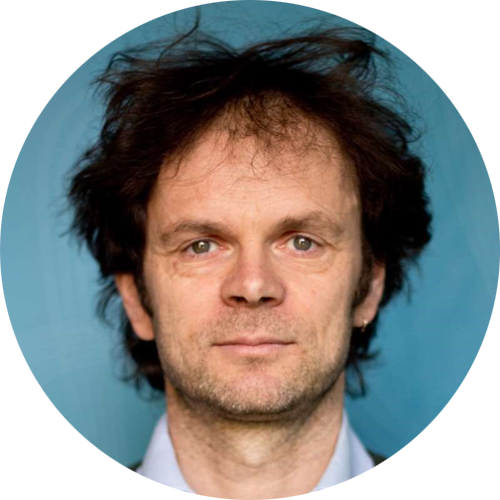
Prof. Håvard Hegre
Hegre is Dag Hammarskjöld Professor in Peace and Conflict Research at Uppsala University and adjunct Research Professor at the Peace Research Institute Oslo (PRIO). His research focuses on the relationships between democracy, development, and armed conflict as well as on forecasting of political events. The research has been funded by the Research Council of Norway, the Norwegian Ministry of Foreign Affairs, the World Bank, the UN Economic and Social Commission for West Africa, MISTRA, and the European Research Council (ERC). For the past few years, Hegre has led work to develop a pilot early-warning system for political violence funded by an ERC Advanced Grant (http://views.pcr.uu.se) and is currently starting up a project Societies at Risk that will study and eventually forecast the humanitarian impacts of armed conflict (https://www.pcr.uu.se/research/sar/about/).
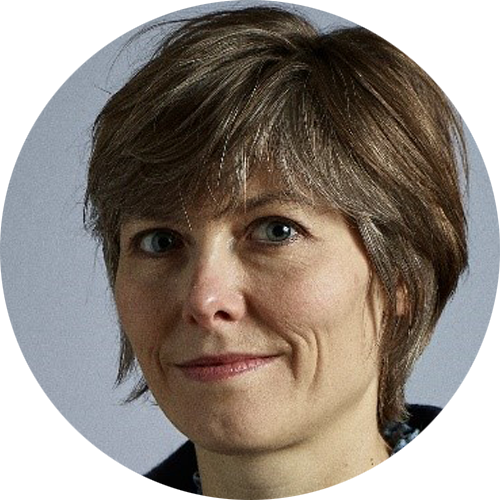
Ms. Sarah Rosengärtner
A political scientist by training, Sarah Rosengärtner currently serves as Senior Advisor and Lead Coordinator for Knowledge and Practice of the Africa Climate Mobility Initiative (ACMI), based in New York. She is also a Visiting Researcher at the Zolberg Institute for Migration and Mobility at the New School. Sarah previously held advisory roles with the Mayors Migration Council, the Open Society Foundations, the Elders, the Global Forum on Migration and Development, GIZ, and the Special Representative of the UN Secretary General on Migration. She started her career at the United Nations in 2005, working first with the UN Institute for Training and Research and then the UN Development Programme, where she led a global interagency programme supporting countries with integrating migration into their national development strategies.
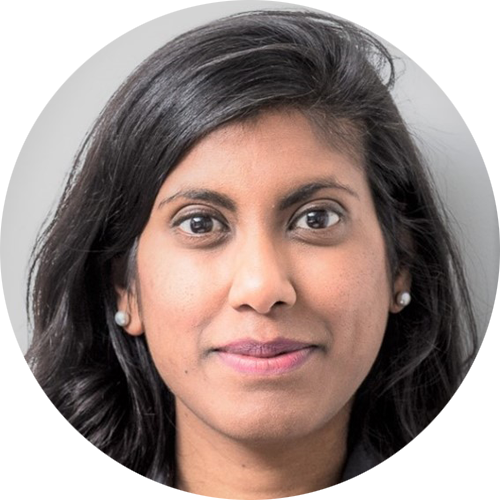
Ms.Janani Vivekananda
Janani Vivekananda is the Head of Programme, Climate Diplomacy and Security at adelphi, Berlin. Her work involves leading participatory field research on community-level resilience to conflict and climate change, developing conflict-sensitive approaches to climate change risks, and increasing the capacity of governments and civil society to integrate climate and conflict risk into policies and field projects. Janani is the co-lead of the flagship Weathering Risk initiative. She is also lead author of the 2019 climate security risk assessment of Lake Chad, Shoring up Stability, and the 2015 flagship G7 report "A New Climate for Peace", dealing with climate change impacts on fragile states. Before joining adelphi, Janani was the Head of the Environment, Climate Change and Security at International Alert. Prior to this, she was the Disaster Risk Reduction (DRR) advisor at Plan International, where she supported headquarters and regional programmes on DRR issues, specifically in fragile states. Janani has also worked with UNDP based in Nepal as a regional conflict advisor for the South Asia region. Janani holds a master’s in Violence, Conflict and Development from the School of Oriental and African Studies (SOAS), and a MA in Politics, Philosophy and Economics from Oxford University.
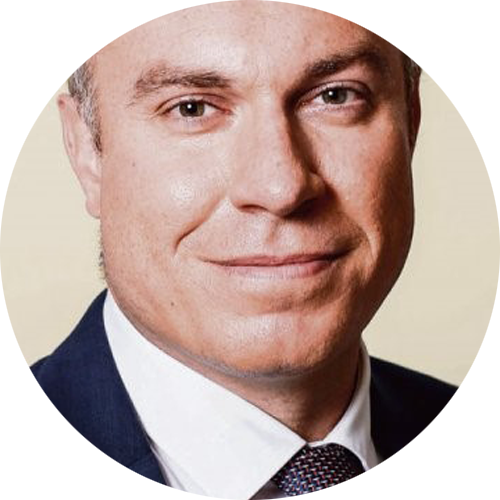
Mr. Francois Gemenne
Director, The Hugo Observatory
François Gemenne is a specialist of environmental geopolitics and migration governance at the University of Liège, where he is a FNRS senior research associate and the Director of the Hugo Observatory. He also heads the Observatory on Defence and Climate of the French Ministry of Defence, jointly with Julia Tasse at IRIS. He is a lead author for the IPCC and he also lectures on climate change and migration policies in different universities, including Sciences Po and Sorbonne University in Paris.
His research deals mostly with environmental and migration governance. He has worked in particular on populations displaced by environmental changes and the policies of adaptation to climate change, as well as on asylum and migration policies. He has conducted field studies in New Orleans after hurricane Katrina, Tuvalu, China, Kyrgyzstan, the Maldives, Mauritius, as well as in Japan after the Fukushima disaster.
He is currently coordinating two important European research projects: MAGYC, on migration governance and asylum crises, as well as HABITABLE, on migration induced by climate change. He also coordinated the DEVAST project, one of the first international projects to examine the social and political consequences of the Fukushima disaster. Furthermore, he has been involved in a large number of international research projects on migration and environmental changes, including EACH-FOR, HELIX, EDGE, MISTY and MECLEP, for which he was the global research coordinator.
In 2015, he was the recipient of a Fulbright scholarship to pursue research at Princeton University. He has also been a guest professor at the University of Buenos Aires and the University of Economics in Bratislava, and has spent research stays at Tulane University in New Orleans, Louisiana State University in Baton Rouge, the University of the South Pacific in Suva (Fiji) and the Australian National University in Canberra.
He has also been the scientific advisor of the exhibition ‘Native Land. Stop Eject’ at the Fondation Cartier pour l’Art Contemporain, in Paris. He has consulted for several organisations, including the International Organisation of Migration (IOM), the Asian Development Bank (ADB), the World Bank, the UN High Commissioner for Refugees (UNHCR) and the British government (Foresight). In 2010, he was awarded the ISDT-Wernaers Prize for achievement in the communication of science to the general public.
He holds a joint doctorate in political science from Sciences Po Paris and the University of Liege (Belgium). He also holds a Master’s degree in Development, Environment and Societies from the University of Louvain, as well as a Master of Research in Political Science from the London School of Economics, where he also taught. In 2008, he was awarded a post-doctoral scholarship from the AXA Research Fund. He has published in leading journals, including Science and Global Environmental Change, and has authored several books, amongst which ‘The Anthropocene and the Global Environmental Crisis’ (edited with C. Hamilton and C. Bonneuil, Routledge 2015) the Atlas of Environmental Migration (with D. Ionesco et D. Mokhnacheva, Routledge 2016) or Handbook of Environmental Displacement and Migration (edited with R. McLeman, Routledge 2018).
He is also the director of the Politics of the Earth series at Presses de Sciences Po, a leading French academic publisher, and the President of the Board of the NGO Climate Voices, which seeks to connect youth from the global North and the global South around climate issues.
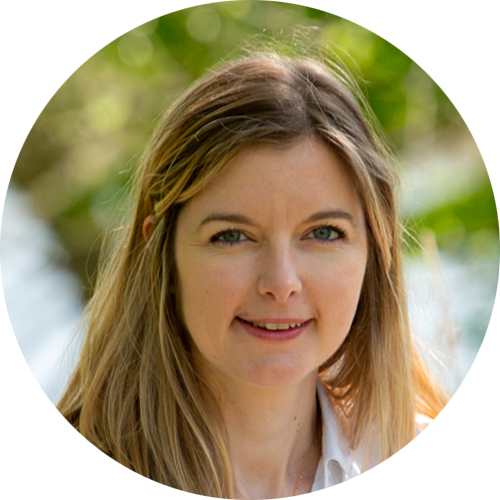
Dr. Candice Howarth
Grantham Research Institute on Climate Change and the Environment; Co-Director of the Place-based Climate Action Network
Dr. Candice Howarth is co-Director of the Place-based Climate Action Network (PCAN) and a Senior Policy Fellow at the LSE Grantham Research Institute on Climate Change and the Environment.
Her research interests focus on how the co-production of knowledge and science communication can be used to better inform decision-making in the context of climate resilience and sustainability challenges. As part of her work for PCAN she leads the Adaptation platform and manages the network of PCAN Analysts, Associates and Fellows. She also leads research on resilience to heat risk, narratives of climate action, and climate emergency declarations.
Candice chairs the Royal Geographical Society Climate Change Research Group, is a member of the Royal Meteorological Society Science Engagement group, sits on the London Heat Risk Group and is a core member of the GRI Heat Resilience Knowledge Hub. She contributed to the chapter on Industry and Business for the 3rd UK Climate Change Risk Assessment (CCRA3) and sits on the Editorial Board of the journal Environmental Communication.
She regularly advises a range of international, governments and non-governmental organisations, and she is a frequent speaker at academic and non-academic events.
https://www.lse.ac.uk/granthaminstitute/profile/candice-howarth/
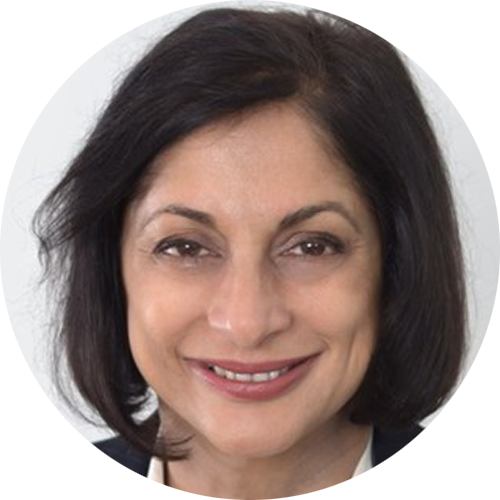
Ms. Anya Sitaram
Moderator
Anya Sitaram is a documentary producer, communications consultant and professional conference moderator specialising in health, science and international development. A former Health and Science correspondent and BBC World News anchor, Anya now runs Rockhopper Media (www.rockhopper.media) an award winning television and film production company. Anya has overseen scores of documentaries which have run on channels around the world including BBC World News, PBS, Discovery, Nat Geo and Al Jazeera among others. Anya began her career as a BBC trainee before becoming ITN Health and Science Correspondent and later a presenter on the BBC’s flagship science programme Tomorrow’s World.